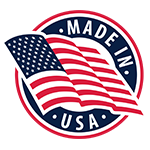Emerging Trends in Scrap Car Electronics Recycling
The automotive industry has seen a significant shift in its approach to managing electronic waste. With increasing environmental concerns and advancements in technology, scrap car electronics recycling has become a critical area of focus. This article explores the emerging trends in this field, emphasizing the keyword “scrap car removal Toowoomba” to illustrate real-world applications and benefits.
The Growing Importance of Electronic Waste Management
Electronic waste, or e-waste, refers to discarded electronic appliances such as computers, televisions, and in the context of this article, car electronics. As vehicles become more technologically advanced, they incorporate numerous electronic components. These include navigation systems, onboard computers, and sophisticated infotainment systems. The need for effective recycling processes for these components has grown in tandem with their prevalence.
In regions like Toowoomba, the emphasis on sustainable practices has led to an increase in services such as “scrap car for cash removal in Toowoomba.” These services not only facilitate the removal of old cars but also ensure that electronic components are recycled responsibly. The proper management of electronic waste helps reduce the environmental impact and promotes the reuse of valuable materials.
Advances in Recycling Technology
Technological advancements are at the forefront of transforming scrap car electronics recycling. Innovations in recycling methods are making it possible to recover more materials from electronic components than ever before. For instance, new techniques in shredding and sorting allow for the efficient separation of metals, plastics, and other materials found in car electronics.
Companies offering “scrap car removal Toowoomba” are adopting these advanced recycling technologies to enhance their operations. By utilizing cutting-edge machinery, they can extract valuable metals like copper and aluminum more effectively, reducing waste and contributing to a circular economy. This not only benefits the environment but also makes the recycling process more economically viable.
Regulatory Changes and Compliance
Regulatory frameworks around the world are evolving to address the challenges posed by electronic waste. Governments are implementing stricter regulations to ensure that electronic components are disposed of and recycled in an environmentally friendly manner. These regulations often require companies to adhere to specific recycling standards and practices.
In Australia, for example, regulations mandate that electronic waste, including car electronics, must be processed in certified facilities. This has led to a rise in certified “scrap car removal Toowoomba” services that comply with these standards. By following these regulations, these services help prevent the harmful effects of improper electronic waste disposal, such as soil and water contamination.
The Role of Consumer Awareness
Consumer awareness is a crucial factor in the success of electronic waste recycling initiatives. Educating the public about the importance of recycling car electronics can drive higher participation rates in recycling programs. Many consumers are unaware of the potential environmental hazards posed by discarded electronic components and the benefits of recycling them.
Initiatives aimed at raising awareness about services like “scrap car removal Toowoomba” are essential. By informing consumers about the availability and advantages of these services, more people are likely to dispose of their old cars and electronic components responsibly. This collective effort can significantly reduce the volume of electronic waste ending up in landfills.
Innovations in Battery Recycling
One of the most challenging aspects of scrap car electronics recycling is the management of batteries. Modern vehicles often contain multiple types of batteries, including lead-acid and lithium-ion batteries. These batteries are hazardous if not disposed of correctly but also contain valuable materials that can be recovered and reused.
Recent advancements in battery recycling technologies have improved the efficiency and safety of this process. For instance, specialized facilities can now safely dismantle and process batteries to extract metals like lithium, cobalt, and nickel. Companies offering “scrap car removal Toowoomba” are incorporating these technologies into their services to handle batteries more effectively and sustainably.
The Economic Benefits of Recycling
Recycling car electronics is not only beneficial for the environment but also offers significant economic advantages. Recovering valuable materials from electronic waste can reduce the need for virgin resources, lowering production costs for new electronic components. Additionally, the recycling industry creates jobs and stimulates economic activity.
In regions like Toowoomba, the economic impact of services such as “scrap car removal Toowoomba” is notable. By supporting local recycling businesses, communities can benefit from job creation and the development of a robust recycling infrastructure. This contributes to the overall economic health of the area while promoting sustainable practices.
Challenges and Future Directions
Despite the advancements in scrap car electronics recycling, several challenges remain. One of the primary obstacles is the complexity of modern electronic components, which makes the recycling process more intricate and labor-intensive. Additionally, there is a need for more comprehensive regulations and enforcement to ensure that all electronic waste is recycled properly.
Looking to the future, continued innovation and collaboration are essential. Developing new recycling technologies and improving existing ones will be crucial in addressing the challenges posed by electronic waste. Furthermore, enhancing consumer awareness and participation will play a vital role in driving the success of recycling programs.
Companies offering “Cash For Damaged Cars in Brisbane” will need to stay at the forefront of these developments to provide effective and sustainable recycling solutions. By doing so, they can contribute to a cleaner environment and a more sustainable future.
Community Involvement and Support
Community involvement is a key component of successful recycling programs. Engaging local communities in recycling initiatives can lead to higher participation rates and more effective recycling outcomes. Educational programs, community events, and partnerships with local organizations can help raise awareness and encourage responsible disposal of electronic waste.
In Toowoomba, community-focused initiatives by “scrap car removal Toowoomba” services have shown positive results. By collaborating with schools, local businesses, and environmental groups, these services can promote recycling and sustainability within the community. Such efforts not only improve recycling rates but also foster a culture of environmental responsibility.
Global Perspectives on Electronic Waste Recycling
The issue of electronic waste is not confined to any one region; it is a global challenge that requires a coordinated effort. Different countries have adopted various approaches to managing electronic waste, and there is much to be learned from these international perspectives. Sharing knowledge and best practices can help improve recycling processes worldwide.
For instance, countries with advanced recycling infrastructures, such as Germany and Japan, have implemented comprehensive electronic waste management systems. These systems include strict regulations, public awareness campaigns, and advanced recycling technologies. By examining these successful models, “scrap car removal Toowoomba” services can adopt and adapt strategies that have proven effective in other parts of the world.
The Role of Technology in Streamlining Recycling Processes
Technology continues to play a significant role in improving the efficiency and effectiveness of scrap car electronics recycling. Innovations such as artificial intelligence (AI) and the Internet of Things (IoT) are being integrated into recycling processes to enhance sorting, tracking, and material recovery.
AI-powered sorting systems can accurately identify and separate different types of materials, increasing the purity of recovered resources. IoT devices can monitor and manage the recycling process, providing real-time data that helps optimize operations. Companies offering “scrap car removal Toowoomba” can leverage these technologies to improve their recycling capabilities and achieve better environmental outcomes.
Conclusion
The landscape of scrap car electronics recycling is rapidly evolving, driven by technological advancements, regulatory changes, and growing consumer awareness. Services like “scrap car removal Toowoomba” are at the forefront of this transformation, adopting innovative practices to manage electronic waste responsibly.
As the industry continues to develop, it is crucial to address ongoing challenges and seize new opportunities. By embracing technological innovations, complying with regulatory standards, and engaging the community, the future of scrap car electronics recycling looks promising. These efforts will not only help mitigate the environmental impact of electronic waste but also contribute to a more sustainable and economically viable recycling industry.

